



 |
 |
 |
 |
 |
 |
 |
 |
 |
 |
 |
 |
 |
 |
 |
 |
 |
 |
 |
 |
 |
 |
 |
 |
 |
 |
 |
 |
 |
 |
 |
 |
 |
Hello and Welcome to our Web Site
Use the menu on the left to find your way around
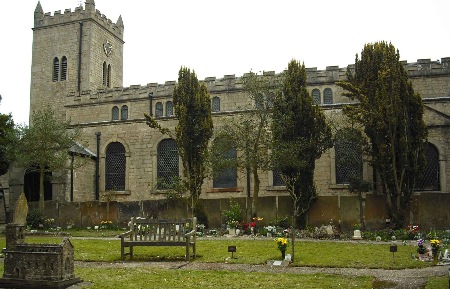
St. Mary of the Purification
Blidworth Parish Church
Blidworth village or Blidworde as it was dates back to the 10th century and references to it can be found in the Domesday Book
of 1086 as being in the centre
of Sherwood Forest. Our district and therefore the Society’s interests,
include Rainworth, Ravenshead, Haywood Oaks and Lyndhurst.
We
have many claims to fame:It is believed that there is evidence of Roman
occupation at a site on the ‘Rain Water’ and the legend of Robin Hood is
strongly associated with our village. The Maid Marion is said to be a
Blidworth girl, Will Scarlet, legend has it, is buried in our churchyard
and Friar Tuck was made to take Robin over the stream at
Fountaindale.
Another hero, recently celebrated by the village, is Matthew Clay. His heroism at the Battle of Waterloo was pivotal in securing the British victory. Click on this link to see the page dedicated to Matthew.
Blidworth,
for centuries has relied on forestry and farming for its livelihood.In
the 19th century though, we had many knitting frames and the corn from
the fields was ground by one of three windmills. We are fortunate to
have the remains of one windmill. Our Society supports the Parish
Council in its application for grant funding for its preservation.
Blidworth
is also closely associated with the mining industry. The colliery was
sunk in 1926 and continued until 1989. Many of our villagers have strong
memories of their time, mining the black gold.
Of international
interest is the remains of a glacial deposit; the Druids Stone. This
has been a prominent feature within the village for centuries although
more recently, planting has obscured it from public view.
Our Parish Church of St Mary’s holds the ancient and probably unique ceremony of ‘Rocking’.
The male infant born nearest to Christmas and representing the baby
Jesus, is ‘rocked’ by the vicar during a special service.
Our recent project has been to research the effect of the First World War on our
village. 2014 was one hundred years since the ‘Great War’ began
and we commemorate the role that Blidworth men had in the‘War to
End All Wars’. Our findings were published in 2014 in our book entitled "Blidworth and the First World War" and included is how
the village changed over the period of the conflict. Click on the link to go to the dedicated page.
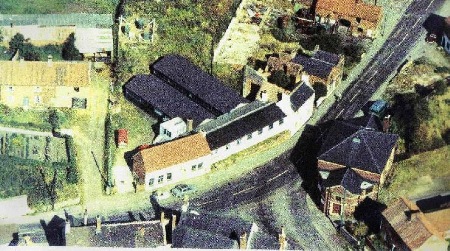
The Allen & Solly garment factory opposite the Black Bull.
Photo taken in 1964. Now replaced by Cottages
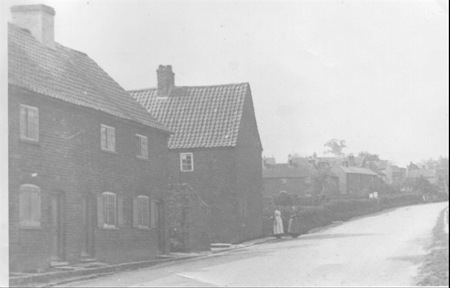
Cliffty Nook - bottom end of Main Street
Taken in 1908
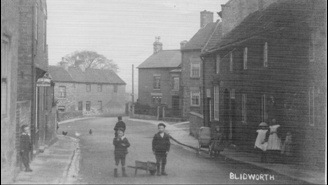
Top end of Main Street, water can be seen running in the gutters as there were no drains at the beginning of the 20th century
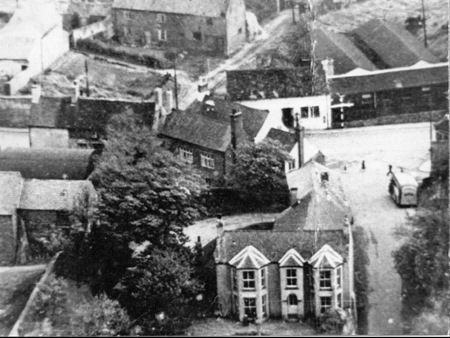
The Black Bull yard
The junction that can be seen is Field Lane/Main Street
View of the west clock of St.Mary,s Church and adjacent Church farm dwelling. Taken from Rickets Lane
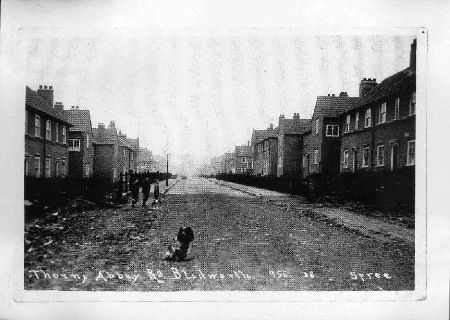
Thorney Abbey Road in 1954
We would be extremely
grateful to hear from anyone possessing old photographs, documents, artefacts or
memorabilia and who would be willing to donate or loan them to the Society. See our "About Us" page










